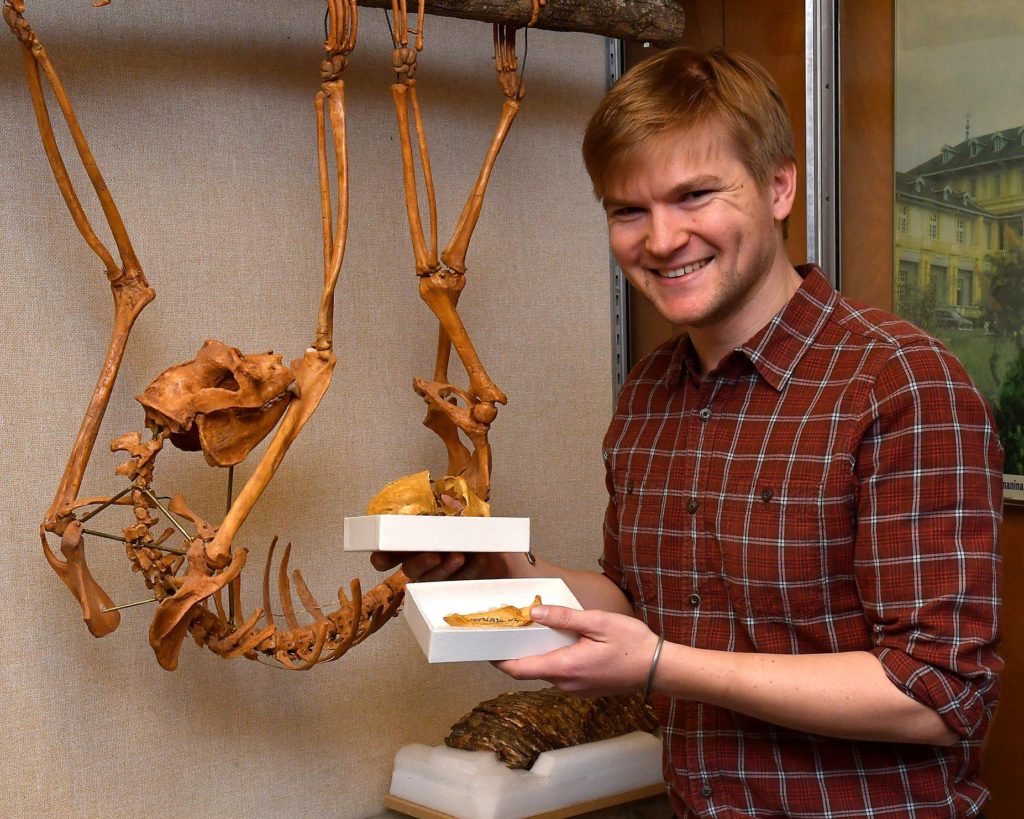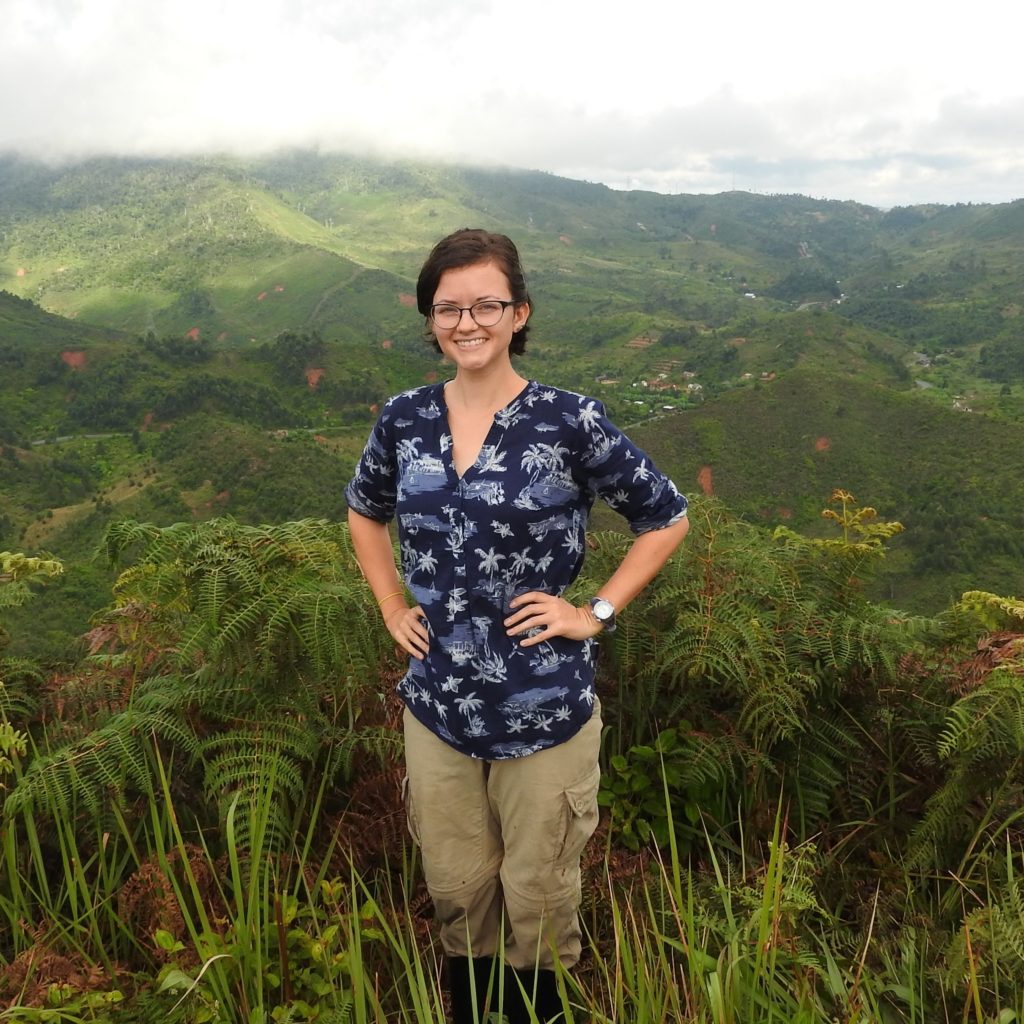
Dr. Borths is Curator of the DLC Museum of Natural History. He earned his bachelor's degrees from The Ohio State University (Geological Sciences and Anthropology) and his Ph.D. from Stony Brook University (Anatomical Sciences).
Matt is a paleontologist who studies the evolution of animals in Africa, particularly the evolution of carnivorous mammals -- including some of the oldest meat-eaters to chase down our primate ancestors. He has been part of field projects in Egypt, Madagascar, Oman, Kenya, Tanzania, Wyoming, and North Dakota. Matt is the co-creator of Past Time, a project that uses a podcast, blog, social media, and virtual classroom visits to teach non-specialists about the paleontology and the scientific process.
Matt's CV can be viewed HERE.
Email: matthew.borths@duke.edu

Catherine is the Collections Manager at the DLCMNH, which means she wears a lot of hats! She is the assistant to the curator and is the DLCMNH collections manager. Catherine is also in charge of keeping the DLCMNH on track financially as well as helping with grants. If you’re visiting the collection, Catherine will help coordinate your visit, and if you need a loan from the museum she will help get the specimens to and from your lab. She also helps schedule work-study students and volunteers.
Catherine is a member of the Society for the Preservation of Natural History Collections (SPNHC), where she coordinates with other collections managers to ensure the longevity of the DLCMNH. Her favorite part of working at the museum is seeing people, especially kids, get excited about fossils.
Email: criddle@duke.edu

Karie is the Fossil Preparator at the DLCMNH. She works to uncover fossil specimens from the rock they are encased in, making sure they are sturdy enough to be studied by researchers. As preparator, she also makes molds and casts (exact copies) of fossils for display in museums. Karie started her fossil preparation journey at the University of Michigan where she earned her B.S., then continued on to be fossil preparator at Ohio University where she earned her M.S.
Karie has been to Madagascar on research every summer since 2015, and she can speak Malagasy (the language of Madagascar). She recently spent nine months there on a Fulbright grant to study sustainable rice agriculture near Maromizaha protected area – home to critically endangered lemur species such as the indri. Karie is excited to merge her interests in fossils and the environment of Madagascar by working at the DLCMNH!
Kathleen Muldoon, Ph.D.
Doug Boyer, Ph.D.
Erik Seiffert, Ph.D.
Hesham Sallam, Ph.D.
Richard Kay, Ph.D.

